 January 2024 in “Journal of Pharmacognosy and Phytochemistry”
January 2024 in “Journal of Pharmacognosy and Phytochemistry” Rosemary hair serum promotes healthier, stronger, and shinier hair.
[object Object]  December 2023 in “Research in pharmacy”
December 2023 in “Research in pharmacy” Phytotherapeutic compounds and supplements can help manage Polycystic Ovarian Syndrome (PCOS).
 November 2023 in “Regenerative Biomaterials”
November 2023 in “Regenerative Biomaterials” The new adhesive seals wounds quickly, works well in wet conditions, and helps with healing.
 October 2023 in “Biomedical science and engineering”
October 2023 in “Biomedical science and engineering” Innovative methods are reducing animal testing and improving biomedical research.
 October 2023 in “International journal of biology, pharmacy and allied sciences”
October 2023 in “International journal of biology, pharmacy and allied sciences” Henna helps wounds heal faster and better.

The hair masks are safe, stable, and effective for hair care.
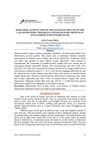 October 2022 in “Asian journal of healthy and science”
October 2022 in “Asian journal of healthy and science” Mother-in-law's tongue leaf extract at 20% concentration significantly promotes hair growth in male rabbits.
 September 2022 in “Research Square (Research Square)”
September 2022 in “Research Square (Research Square)” Caffeic acid helps protect rats from the harmful effects of acrylamide.
 March 2022 in “Benha Journal of Applied Sciences”
March 2022 in “Benha Journal of Applied Sciences” ULBP3 levels are higher in Tinea capitis patients and may help predict the disease's severity.
 December 2021 in “Benha Journal of Applied Sciences”
December 2021 in “Benha Journal of Applied Sciences” Higher Claudin 3 levels in the blood are linked to more severe alopecia areata.
 April 2021 in “JOJ dermatology & cosmetics”
April 2021 in “JOJ dermatology & cosmetics” The combined laser and plasma jet therapy effectively regrew hair in a woman with alopecia areata.
 March 2021 in “Egyptian Journal of Chemistry”
March 2021 in “Egyptian Journal of Chemistry” The herbal shampoo with Momordica charantia and Hibiscus Rosa-Sinensis is safe and promotes hair growth and scalp health.
 January 2021 in “Journal of cosmetology & trichology”
January 2021 in “Journal of cosmetology & trichology” L-(+)-Tartaric Acid may help increase certain hair growth genes without harming cells.
 February 2020 in “International research journal of pharmacy”
February 2020 in “International research journal of pharmacy” The emulsion made from tea plant and onion extracts shows promise for treating hair loss.
 January 2020 in “Der Pharmacia Lettre”
January 2020 in “Der Pharmacia Lettre” Nanoparticle-based herbal remedies could be promising for treating hair loss with fewer side effects and lower cost, but more research is needed.
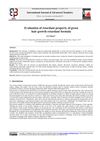 May 2019 in “International journal of advanced chemistry”
May 2019 in “International journal of advanced chemistry” The green cream safely slowed hair growth by 25%.
 April 2018 in “Journal of Investigative Dermatology”
April 2018 in “Journal of Investigative Dermatology” Claudin-1 and Claudin-3 are crucial for keeping hair follicle structure and preventing a type of hair loss called telogen effluvium.
[object Object]  April 2018 in “Journal of Investigative Dermatology”
April 2018 in “Journal of Investigative Dermatology” Glycogen metabolism is important for energy and processes in human hair follicles, and hair follicles may produce glucose from lactate.
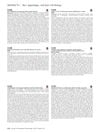 April 2018 in “Journal of Investigative Dermatology”
April 2018 in “Journal of Investigative Dermatology” Hair follicle stem cells can change their role to ensure proper hair development.
 April 2018 in “Journal of Investigative Dermatology”
April 2018 in “Journal of Investigative Dermatology” Nicotinic acid reduces excessive oil production in skin cells by activating a specific receptor, which could help treat acne.
 April 2018 in “Journal of Investigative Dermatology”
April 2018 in “Journal of Investigative Dermatology” The role of γδT-cells in causing alopecia areata remains unclear.
 April 2018 in “Journal of Investigative Dermatology”
April 2018 in “Journal of Investigative Dermatology” Acne patients' skin, both with and without lesions, shows a strong immune response and higher antimicrobial activity.
 November 2017 in “Pediatrics in Review”
November 2017 in “Pediatrics in Review” A 4-year-old girl with hair loss was diagnosed with early-onset trichotillomania and improved with behavioral interventions.
 September 2017 in “Journal of Investigative Dermatology”
September 2017 in “Journal of Investigative Dermatology” Thermal imaging is a useful non-invasive method to diagnose active inflammation in frontal fibrosing alopecia.
 April 2017 in “Journal of Pharmaceutical Investigation”
April 2017 in “Journal of Pharmaceutical Investigation” Indole-based compounds improved ovarian health in rats with PCOS, with L-Tryptophan and Tryptophol being most effective.

Forensic hair analysis for drugs is now more reliable and accurate.
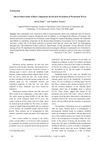 January 2013 in “Sen'i Gakkaishi”
January 2013 in “Sen'i Gakkaishi” Microfibrils are key for permanent waves, and hydrolyzed keratin improves wave formation and hair condition.
 October 2012 in “Humana Press eBooks”
October 2012 in “Humana Press eBooks” Grape seed extract is good for skin care, with antioxidant, anti-inflammatory, and anti-cancer effects.
 September 2004 in “Experimental dermatology”
September 2004 in “Experimental dermatology” Melatonin directly affects mouse hair follicles and may influence hair growth.
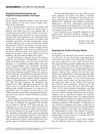 December 1999 in “Dermatologic Surgery”
December 1999 in “Dermatologic Surgery” Experts discussed sedation, hair transplant techniques, and called for respectful professional communication.






























